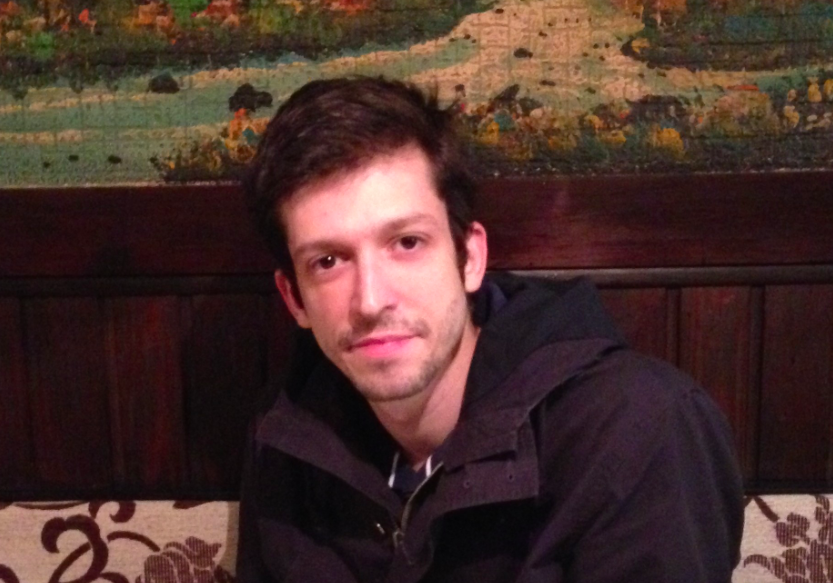Search
To search for an exact match, type the word or phrase you want in quotation marks.
A*DESK has been offering since 2002 contents about criticism and contemporary art. A*DESK has become consolidated thanks to all those who have believed in the project, all those who have followed us, debating, participating and collaborating. Many people have collaborated with A*DESK, and continue to do so. Their efforts, knowledge and belief in the project are what make it grow internationally. At A*DESK we have also generated work for over one hundred professionals in culture, from small collaborations with reviews and classes, to more prolonged and intense collaborations.
At A*DESK we believe in the need for free and universal access to culture and knowledge. We want to carry on being independent, remaining open to more ideas and opinions. If you believe in A*DESK, we need your backing to be able to continue. You can now participate in the project by supporting it. You can choose how much you want to contribute to the project.
You can decide how much you want to bring to the project.
Happiness is a philosophical objective, an end in itself. The writing of Chris Kraus turns this objective into a concept located materially in life; through her novels and critical essays (I Love Dick, Aliens & Anorexia, Torpor, Video Green, Where Art Belongs, amongst others), ), the question of happiness turns into an instrument with which to consider the social, cultural and personal constellations that are booming on the MFAs in Los Angeles, the idiosyncrasy of commercially successful artists, to simpler organizations such as marriage, friendship and the relationship of the writer with her work. Happiness in her writing wanders behind love and intelligence, as the Epicureans said, hidden beyond more immediate and exterior finalities of money, fame, beauty, etc. With a concept of subjectivity rooted in French theory and with a method of writing always tempered by her own involvement with the scene that she describes in all its psychic potential –be it the East Coast art world of art or the European intellectual jet set of the nineties- the literary work of Kraus always traverses a transitional movement, towards intensity, from misery to splendour, from downfall to recuperation.
If the problem of happiness in itself supposes a political articulation, Summer of Hate (2012) proffers a chronotope: the space, the so-called Southwest (specifically Albuquerque, New Mexico) and the time: the first years of the second presidency of GW Bush, marked by paranoia, the war and a humanitarian cataclysm. The novel follows the paths found by Catt Dunlop —a Los Angeles art critic— and Paul Garcia —ex-con and alcoholic in rehabilitation. Through a love story mediated by the division of the classes, the novel abounds in the psychic experience of poverty, understood as an epistemological collapse: life in trailers, the ubiquity of addictions, the dynamics of the penitentiary industry and the stories of life rooted in personal and professional failure alternate in the novel with the processes of capital transference that take place under the government of Bush Jr., constructing a traumatic image of the social division right in the middle of what not so long ago was called the First World. In this ambience, poverty or unhappiness, are materially produced: all of life is tailored made for it. The material enables a documented unravelling of the philosophical id of the protagonist, who can articulate exalted theories and amorous fantasies at the same speed as she traverses motorways and lawyers offices in her efforts to get her boyfriend – once again- out of prison. At a certain intensity, according to Kraus, emotion and thought become synonymous.
Paying tribute to the report on experience and heir to illustrious writers such as Montaigne and William Burroughs, Kraus once made the observation that “recovery” was going to be the key term for the present decade. With Summer of Hate, her prophecy is fulfilled, or becomes more detailed: the history of Paul’s recuperation advances from the behavioural models of Alcoholics Anonymous to the domain of ethics, understood as a critical ambit: a love triangle allows him, finally, to taste responsibility, the capacity to act on his exterior. Happiness is an opaque object, but the search is distinct from the distressing paranoia linked to success. In as much as she advances this thesis, the whole book turns into a treatise of practical philosophy, in the form of a thriller about love.

Claudio Iglesias is an art critic based in Buenos Aires. His latest books are Corazón y realidad (Consonni, Bilbao, 2018) and Genios pobres (Mansalva, Buenos Aires, 2018).
"A desk is a dangerous place from which to watch the world" (John Le Carré)